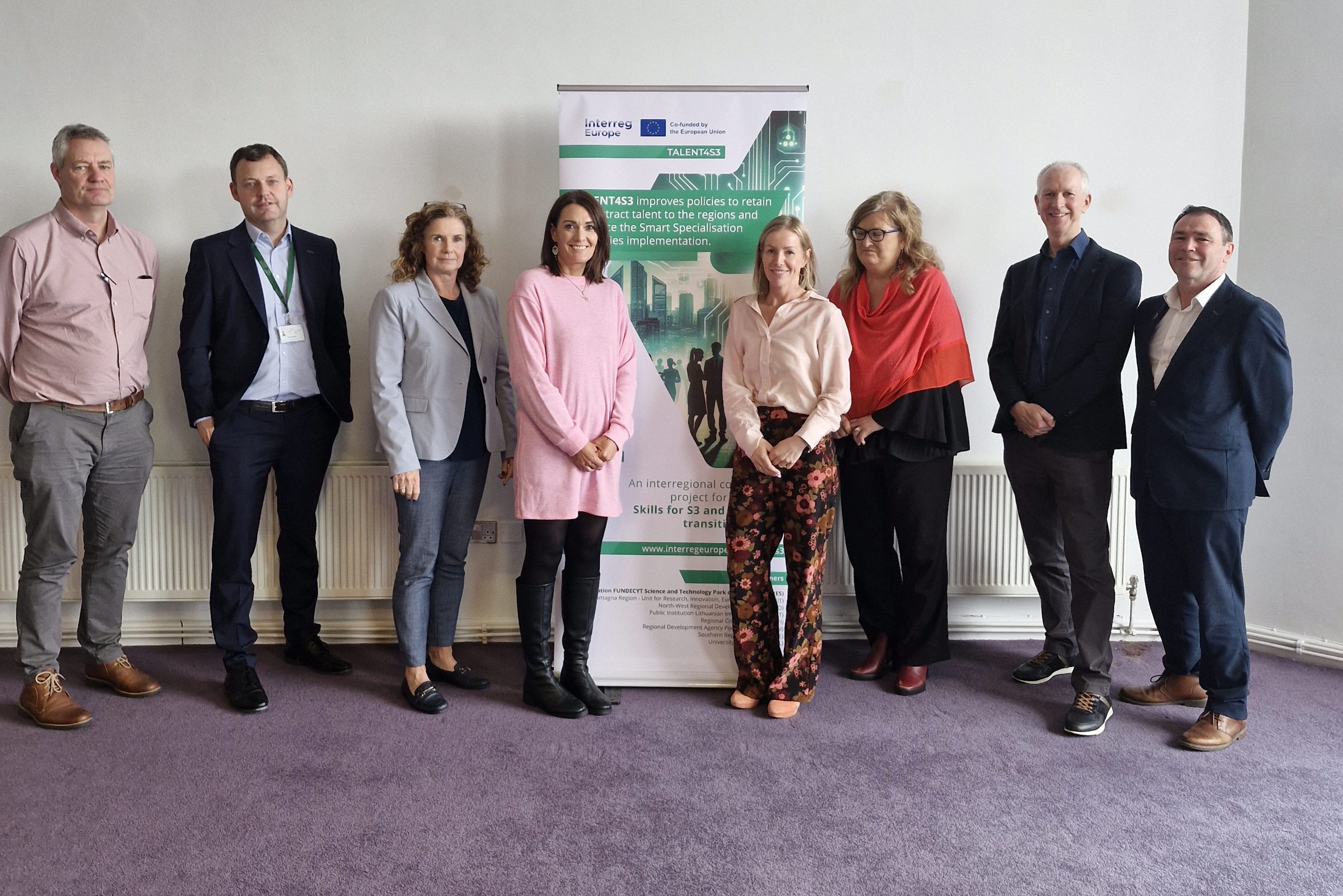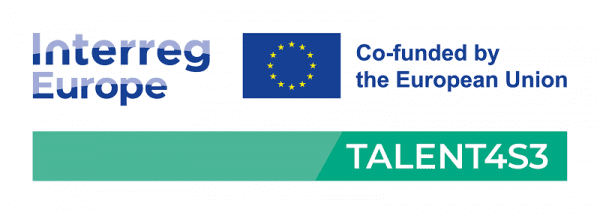The Southern Regional Assembly recently convened regional partners for the TALENT4S3 Regional Stakeholder Group Meeting at Limerick City & County Council, bringing together representatives from education, industry, skills networks, and local authorities to discuss the role of diaspora and aspiring diaspora in supporting talent development across the Southern Region.
As talent attraction and retention continue to shape regional competitiveness, the meeting focused on how a coordinated approach to diaspora engagement can contribute to addressing skills shortages, strengthening innovation networks, and enhancing knowledge exchange within the region’s smart specialisation areas.
Participants were asked to share examples of existing or past initiatives in the Southern Region that have engaged with our diaspora as a means of talent attraction. These included the Live, Work, Local initiative in Kilkenny and ongoing work by the UL Foundation in maintaining strong international alumni connections. The meeting also explored how we understand the term diaspora and whether this should be expanded to include, for example, the aspiring diaspora, understood to be individuals who have lived, studied, or worked in the region and retain a meaningful connection to it, even if they were not born here.
SETU (Southeast Technological University) shared insights into the value of regional alumni networks and the unrealised potential in reconnecting graduates with their home region. Participants agreed that alumni engagement represents a significant opportunity to support future talent pipelines.
The stakeholder meeting also reflected on lessons from recent interregional study visits undertaken through TALENT4S3, particularly to Lithuania. Presentations outlined how Lithuanian agencies have developed structured programmes to attract global talent, connect with diaspora youth, and build strong ecosystems around international mobility. Examples such as the Bring Together Lithuania initiative and Work in Lithuania programme highlighted practical ways to strengthen global engagement.
Stakeholders examined the importance of reframing talent mobility as “brain circulation”, emphasising reciprocity, collaboration and the flow of knowledge between regions. They also discussed emerging skills shortages, the variation between urban and rural communities, and the infrastructure and housing challenges that can discourage return migration.
The workshop considered how institutions can build capacity to engage more effectively with diaspora networks, including through digital platforms, alumni initiatives and project-based collaboration. Stakeholders agreed on the value of developing a Southern Region Diaspora Skills and Knowledge Transfer Framework to guide this work.
The Assembly will continue to work with partners to progress this framework, explore opportunities for collaboration with industry and skills bodies, and identify practical pilot initiatives that support brain circulation and regional innovation under the TALENT4S3 project.


